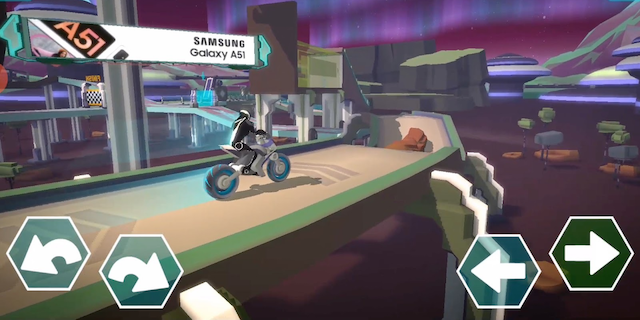Show, don't tell: how gaming contributes to education and science
Games and game-like elements have been used to help train human minds throughout history. Sports ‘games’ were created to get people to train and keep fit, board games like chess were made to educate soldiers on war strategies, and card games were used to help teach math.
Learning to game
As technology became more advanced, video games picked up this mantle. Turtle Academy released one of the first real educational games called Logo Programming back in 1967 to teach people how to program.

Many influential tech figures, including Mark Zuckerburg and Larry Page, say that playing video games from a young age helped them develop an interest in computing, providing them with the skills they needed to create their own programs.
Previously, gaming was seen by many as a distraction. However, its reputation has been transformed over the past decade. With the advancement of smartphones, powerful computers, and next-generation consoles, it has become available to all and grown bigger than both the music and film industries combined.
Nowadays, video games are actively used in educational, training, and even science experiments to help engage participants. According to ASTD research, 53% of employees prefer to train with video games, and 99% of companies recommend using them.
Furthermore, the federation of American Scientists found that training employees using video games over traditional methods increases retention by 90% and practical knowledge by 20%. They also found that employees are 300% more likely to complete training if it’s done via gaming.
Learning during lockdown
The past year has helped boost gaming’s reputation even further. As parts of the world were locked down due to the pandemic, video games became an essential tool to help businesses train employees from afar and for children to develop vital skills while schools were closed.
A recent study on UK children found that gaming can make kids more creative. 63% of the young people involved said they write video game-related content, including scripts, top tips for other players, and reviews. 58% of participants said they'd be up for writing or designing their very own video games. The study also found that playing video games can help young people relate to others better, with 65% saying that gaming helped them imagine being someone else.
It’s not just kids that benefit from gaming. Lockdown saw many adults turn to games to either help them learn new skills or provide them with a new experience. Microsoft’s Flight Simulator, which teaches players what it’s like to fly a plane, topped the PC gaming charts last year, raking in over two million virtual pilots. According to Microsoft, the latest entry was the fastest-growing edition in the game’s 38-year history.
Another game that saw even more success during lockdown was Minecraft. Launched back in 2009, that sandbox game was an instant hit, giving players a world and the tools to create endless possibilities. According to teachers, the game helps children develop complex shapes, tackle geometric problems, and manipulate blocks. All of which are key mathematical concepts that form part of the curriculum. Last year the game generated $415 million, making it its most profitable year since launch.
According to a scientific paper written by researchers at Kent State and Illinois State Universities, action games can also help players develop key skills that they can use in the real world.
They state that “there is much evidence for the effects that video games—specifically action games—can have in several general cognitive domains. For example, such games have been demonstrated to enhance the spatial resolution of vision, visual short-term memory, spatial cognition, probabilistic inference, and reaction time.”
Gaming environments = positive experiences
Teachers, scientists, and businesses around the world have already begun to tap into the positive feeling that players receive from games and have been using this to encourage learning and development through gaming. By associating fun and engagement with education, gaming has become a great tool to help make learning a positive experience.
Like these institutions, gaming presents advertisers with a unique opportunity. According to Gamify, “giving users an outlet to feel accomplishment and earn rewards reflects well on all related parties, helping boost sales. Even consumers feeling in control when they play a game bodes well for brands.”
It’s no surprise then, that over the past few years we’ve seen lots of examples of brands building their own games to take advantage of this. Gatorade created a SnapChat game to tie in with the launch of the US Open, Netflix released an endless runner game where players assume the role of characters from popular Netflix shows, and Metro Trains Melbourne released a game to help teach players about health and safety while using their service, which went on to be a surprise hit, even prompting a sequel.

Previously, advertising in games was expensive, and required big budgets, especially if you had to hire a team to write and create your own game. In-game ads have changed all that and have opened this channel up to brands and agencies of all sizes, allowing them to seamlessly insert their ads into games which complement the experience, rather than disrupt play. More and more brands are using this channel to get their ads in front of gamers in places like virtual roadside billboards, on banners around sports stadiums and on in-game clothing.
By leveraging these positive in-game experiences, advertisers can reach audiences in new and innovative ways, which reflect positively on key business metrics, including brand awareness, brand recall, brand favorability, and purchase intent.
Natalia Vasilyeva, VP Marketing at Anzu
Content created with:

Anzu
Anzu is the most advanced in-game ad solution for mobile, PC, console, and Roblox. Anzu’s in-game ads put players first and help advertisers reach audiences programmatically in a non-disruptive and highly engaging way. A patented 3D ad tracking engine, the first to bring viewability measurement in-game with Oracle Moat, and partnerships with trusted AdTech vendors make Anzu the preferred in-game advertising partner for advertisers worldwide.
Find out more